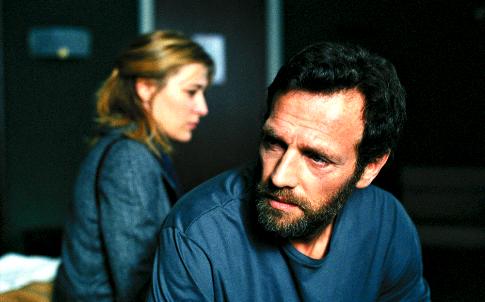Year: 2012
Director: Paul Thomas Anderson
Screenplay: Paul Thomas Anderson
Starring: Joaquin Phoenix, Philip Seymour Hoffman, Amy Adams
Running Time: 137 minutes
Genre: Drama
Freddie Quell (Phoenix), a troubled, heavy drinking World War Two veteran, finds it difficult to adjust to postwar American society. His drinking, coupled with his violent, erratic behaviour, causes him to be fired from several jobs, as he drifts across the States. In San Francisco, Freddie meets Lancaster Dodd (Hoffman) the founder and leader of a movement known as "The Cause", which claims to help people using a confrontational technique called "Processing". Freddie becomes fascinated by The Cause and the charismatic Dodd, and soon becomes a devoted follower.
This complex and often bleak drama, inspired by the early years of Scientology, is a powerful and sometimes disturbing piece of work. Joaquin Phoenix gives one of his best performances as the violent alcoholic Freddie Quell. The lecherous, mercurial Quell is often a deeply unlikeable character, but Phoenix gives us a glimpse of the humanity at his core. Philip Seymour Hoffman is perfectly cast the charming, garrulous Dodd. With Hoffman you can see how someone might fall for Dodd's line. Dodd and Quell form a kind of father-son relationship, with Dodd frequently talking to him as if he's a small child, despite the fact that Hoffman was only seven years older than Phoenix. There are moments, however, when Dodd's genial facade slips in brief explosions of rage. Amy Adams plays Dodd's wife, Peggy, a quiet woman, who is a true believer in Dodd and The Cause, who is a mixture of charm, calm rage and steely determination. There are also appearances from Laura Dean, Jesse Plemons and Rami Malek. The film is far more than just a drama about a cult, it deals with America in the late 1940s early 1950s, the need to belong and the deep human will to believe in something. Most of all it's about the strange connection between two men who are polar opposites and yet have a strange attachment. Even when Freddie's bad behaviour alienates almost everyone around him, Dodd still insists in bringing him back into the fold. The film's principal weakness is that it is quite meandering, it's one of those films where the story seems to have reached a conclusion, but there is still more to come. However, this is a small criticism, since this is a truly great film.



